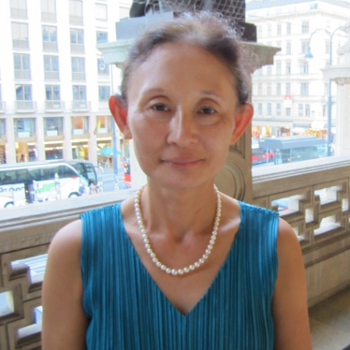Wagner’s Tannhäuser is both an homage to traditional opera with duets, arias, ensembles and chorus, and a transition to the composer’s more mature “music drama” of the Ring and other later operas. The latter’s clearest manifestations are the complex and dynamic orchestral preludes and musical passages. The Met’s revival of the opera of a traditional 1977 production by Otto Schenk, for the first time since 2004, featured an exquisite rendering of the score by the Met Orchestra under James Levine.
The prelude that led into the Venusberg ballet score began with a luxurious tempo with shimmering strings complemented by warm woodwinds. The pace throughout was unhurried and yet never languid. The brass played nobly but not loudly. The off-stage English horn in the Wartburg valley in Act I and on-stage trumpets in the entrance of the guests scene in Act II were most effective. Throughout, Mr Levine brought out the intricate and dense harmonies and counterpoints of the score in a transparent and luxurious manner.
The Met uses a 1861 Paris version, revised from an original 1845 Dresden version. The Venusberg scene was most extensively reworked, including the goddess Venus’ music. One hears the music of Tristan und Isolde in its shifting chords and harmonics. While Tannhäuser sings a traditional ballad in three stanzas, Venus tries to coax her lover to stay using a complex new musical language which at times seemed to challenge Michelle DeYoung’s otherwise alluring and rich mezzo.
Johan Botha, taking on the daunting title role, took a while to warm up in the difficult first act that requires the tenor to sing in an ever higher tessitura in the song to Venus. He gained a surer footing in the second and third acts, with his clarion tenor ringing warmly and never forcefully. He sang the lyrical passages with agility and beauty, and Tannhauser’s duet with Elisabeth, sung by Eva-Maria Westbroek, was one of the highlights as the two voices blended seemingly effortlessly as they ecstatically sang of their love.
It is not often to hear a tenor who can truly sing the lyrical music of Tannhäuser with such agility and beauty as Mr Botha did. However, the final challenge of the role comes in the “Rome Narrative” of Act III, which is more of an arioso or speech-singing. Tannhäuser relates to his friend Wolfram of his pilgrimage to Rome and eventual rejection of his repentance by the Pope in a wrenching self revelation of grief, regret and utter despair. The Narrative paves a way towards Wotan’s monologue in Die Walküre, serving to make the choral ending of the opera, with the return of the pilgrims with proof of Tannhäuser’s salvation through the dead Elisabeth’s intercession, truly moving and remarkable. Mr Botha excelled in this scene, his tireless voice expressing every nuance of Tannhäuser’s sadness, frustration and despair. He then launched into a frenzied call for Venus before collapsing to join Elisabeth in death.
Ms Westbroek brought her rich and beautiful voice full of bright sheen to sing an exciting Act II opening aria “Dich, teure Halle”. While her high notes were sometimes wobbly, she otherwise sang with a deep understanding of the role Elisabeth, who moves from a naive girl to a saintly woman. Her quiet singing in her prayer was full of contemplative beauty.
Günther Groissböck’s bass is a shade lighter than needed for the role of Hermann the Landgrave, and one wished for more clearly audible deep notes. Nevertheless, he sang with authority and dignity, with the best German diction among the cast. Of smaller parts, Ying Fang’s remarkable singing of a young shepherd’s traditional song, utterly exposed except for an accompaniment of an English horn, was a standout. Her clear lyric soprano simply but cleanly shaped the contours of the brief aria as exquisitely as any aria by Mozart.
The performance truly came alive in Act III. As much as one admires Mr Botha’s title role in its beauty and stamina, the best singing of the evening came from Peter Mattei, singing Wolfram. Mr Mattei commanded the stage every time he opened his mouth in Act I's valley scene and in the Act II song contest scene; in the latter he sang two distinct arias. He had two more arias to sing in Act III, the first brief one to describe Elisabeth’s plight, and the second, the famous “O, du mein holder Abendstern”. Throughout, Mr Mattei’s singing was understated, accurate, and full of insight. His solid technique kept Wolfram’s lines smooth and even – no mean feat. The scene with Tannhäuser and Wolfram towards the end of Act III featured these two remarkable artists at their best, bringing the evening to a rousing end.




